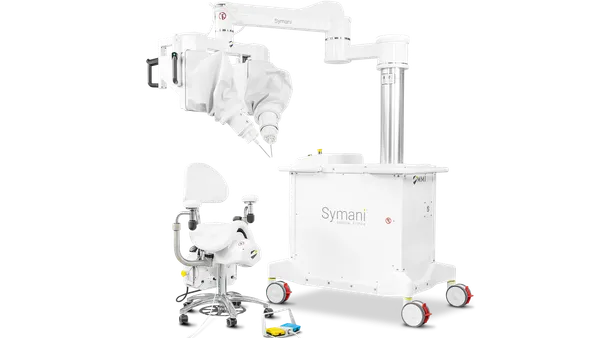Dive Brief:
- Healthcare providers and medical device manufacturers should start transitioning to duodenoscopes with disposable components to cut down the risk of transmitting multi-drug-resistant bacteria infections, FDA recommended Thursday. The agency said reprocessing challenges cleaning the devices and "persistent high levels of contamination" prompted the safety communication.
- Duodenoscopes, flexible tubes used to help diagnose and treat often life-threatening pancreas and bile duct diseases, have been the target of regulators and Senate HELP Committee Ranking Member Patty Murray, D-Wash., due to high rates of contamination after the device has been cleaned. FDA-required postmarket surveillance studies of manufacturers Olympus, Fujifilm and Pentax found elevated rates of contamination of E. coli and Pseudomonas aeruginosa.
- FDA also told healthcare facilities using adenosine triphosphate test strips to detect live microbes inside duodenoscopes after cleaning to not rely on the data, saying it is not aware of a legally marketed ATP test strip reviewed for effectiveness in accessing reprocessing. The agency has contacted ATP test strip manufacturers requesting submission of data, warning enforcement action may be taken if such companies do not comply.
Dive Insight:
While the FDA is advising the transition, the immediate removal of conventional devices could result in device shortages and prevent patients from receiving critical care, the agency said.
With more than 500,000 endoscopic retrograde cholangiopancreatography procedures conducted per year, FDA made clear existing procedures using fixed-endcap duodenoscopes should continue because “because full market withdrawal of conventional, fixed endcap duodenoscopes is not feasible at this time.”
“We recognize that a full transition away from conventional duodenoscopes to innovative models will take time and immediate transition is not possible for all health care facilities due to cost and market availability,” CDRH Director Jeff Shuren said in a statement. “We continue to work with manufacturers to increase the supply of disposable cap duodenoscopes and the development of other new and innovative device designs that will further minimize or eliminate the risk of patient infection.”
The agency also announced it will convene an advisory committee in late 2019 to discuss duodenoscope contamination rates, reprocessing methods and new duodenoscope designs. FDA also is requesting manufacturers include real-world contamination rates on the labels of fixed endcap duodenoscopes already on the market.
To date, FDA has cleared two disposable endcap duodenoscopes from Fujifilm and Pentax, which the agency says may reduce the risk of patient-to-patient contamination by half compared to traditional fixed endcap devices.
On Thursday, FDA announced it is ordering new postmarket surveillance studies to “verify that the new designs reduce the contamination rate.” Once completed, the agency said it expects labeling on disposable encap duodenoscopes will be updated to include contamination rate data to help patients and providers make healthcare decisions.
Fujifilm, which received clearance for its disposable distal end cap model March 28, told MedTech Dive it is “currently finalizing our distribution plans” for the device.
Olympus is currently developing a disposable endcap duodenoscope, and plans to file for FDA clearance “as soon as possible,” according to a company spokesperson.
“We are collaborating with the FDA and are supportive of their recommendation of a gradual transition to duodenoscopes with disposable components,” the Olympus spokesperson told MedTech Dive in an email. The company maintains its duodenoscopes on the market can still be used safely, noting FDA’s safety communication states infection risk remains “relatively low.”
Human factor studies from Olympus and Fujiflm’s devices found current user instruction materials are not sufficient to ensure user adherence in core reprocessing areas such as precleaning, manual cleaning and manual high-level disinfection. Pentax’s initial study met acceptance criterion but had a number of “failures or near-misses in knowledge and performance” for the three areas.
The companies are in the process of working with FDA to revise reprocessing manuals and conduct additional testing, according to the agency.
Stephen Spanos, medical director at Ambu, a company developing a single-use duodenoscope, told MedTech Dive the FDA call for a transition to scopes with innovative designs that facilitate or eliminate the need for reprocessing represents “a big opportunity” for its business model.
“It’s still super critical from a clinical perspective and a public health perspective that patients still avail themselves of the current technology, because the risk of not doing these procedures currently much outweighs the risk of infection,” Spanos said. “It’s intuitive that single use, not just from Ambu, would definitely fall in that guideline and could definitely be a big player.”
Boston Scientific is also looking to break into the market with a single-use duodenoscope. In a June 2018 investor webcast, Art Butcher, senior vice president of endoscopy at Boston Scientific, said such a device represents a market opportunity of more than $1 billion, and has the potential to reduce reprocessing issues, improve cost effectiveness and minimize capital investment.












